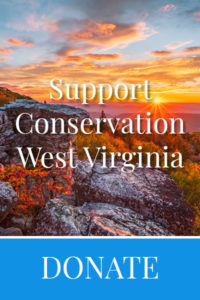June 2020 Conservation Update
U.S. Supreme Court Allows the Atlantic Coast Pipeline to Be Built Underneath the Appalachian Trail
The Atlantic Coast Pipeline will carry natural gas 604 miles from West Virginia to North Carolina. On June 15, 2020 the Supreme Court decided a challenge to the pipeline brought by a number of Virginia conservation groups and the Sierra Club. As proposed, the pipeline would be constructed 600 feet beneath the Appalachian Trail. At the point of crossing, the Trail is in the George Washington National Forest.
The Forest Service, which administers the George Washington National Forest, is authorized by law to issue special use permits for pipelines on land in the national forests. A special use permit for this pipeline was issued. However, a right-of-way for the Trail had been granted years ago by the Forest Service to the National Park Service, which now administers the Trail. The question resolved by the Court was whether this right-of-way for the Trail converted the Trail into National Park land, across which a pipeline may not be built.
The answer was no. The Court said that a right-of-way is nothing more than an easement on land – it is not land itself. Merely because the Park Service administers a narrow strip of land containing a scenic footpath does not convert the land to Park Service land or divest the Forest Service of jurisdiction over the land. Accordingly, the pipeline may be built according to the special use permit.
Great American Outdoors Act Passes Senate
One of the most important pieces of conservation legislation in decades passed the Senate on June 17 by a vote of 73-25. This is a great victory for conservationists because it amounts to a bi-partisan Senate landslide for environmental concerns during a difficult time for our nation. Senator Angus King (I-Maine) quipped that “it’s hard to get 73 votes for the time of day, let alone a piece of legislation.”
The bill would permanently and fully fund the Land and Water Conservation Fund with $900 million annually, paid for by a fee on offshore oil and gas revenue from drilling and production on federal lands, plus address a deferred maintenance backlog for projects at national parks and public lands with $20 billion.
The LWCF is a federal program to provide grants to federal, state and local governments for the purchase of land, water and wetlands for the public benefit. The main focus is land and water for recreation and the protection of natural areas and wildlife habitat. The LWCF is authorized to have an annual budget of $900 million, but this level of funding has been attained only twice in the Fund’s near forty year life.
West Virginia Senators Manchin and Capito both supported the bill and Manchin spoke on the Senate floor in favor.
Opposition to the bill came mainly from coastal state Senators who objected to a cap placed on the amount of money that could be directed to coastal states from the LWCF. These Senators argued that more needs to be done to shore up coastal areas from the effects of rising sea levels and global warming.
The bill now moves to the House of Representatives, where passage is relatively certain. West Virginia Representatives have not yet taken a public position on the legislation.

